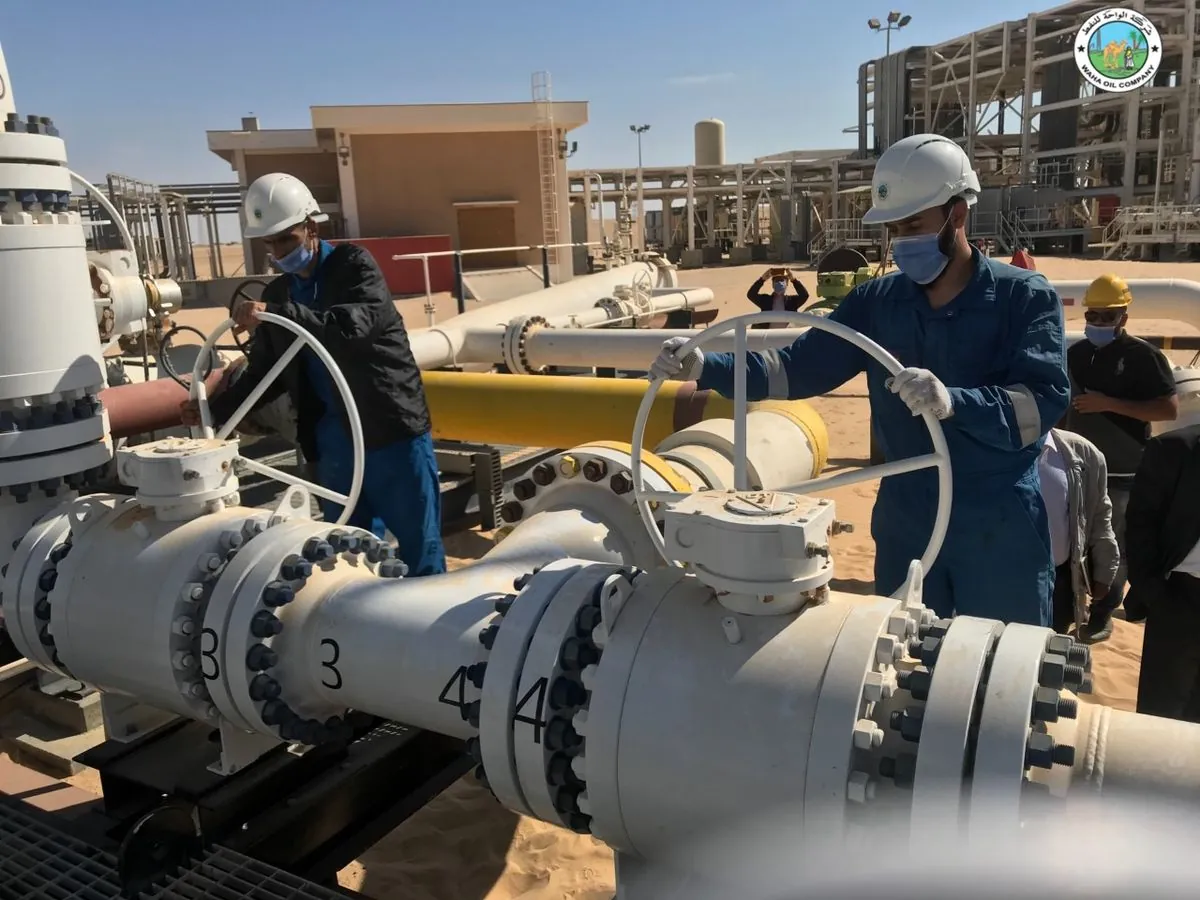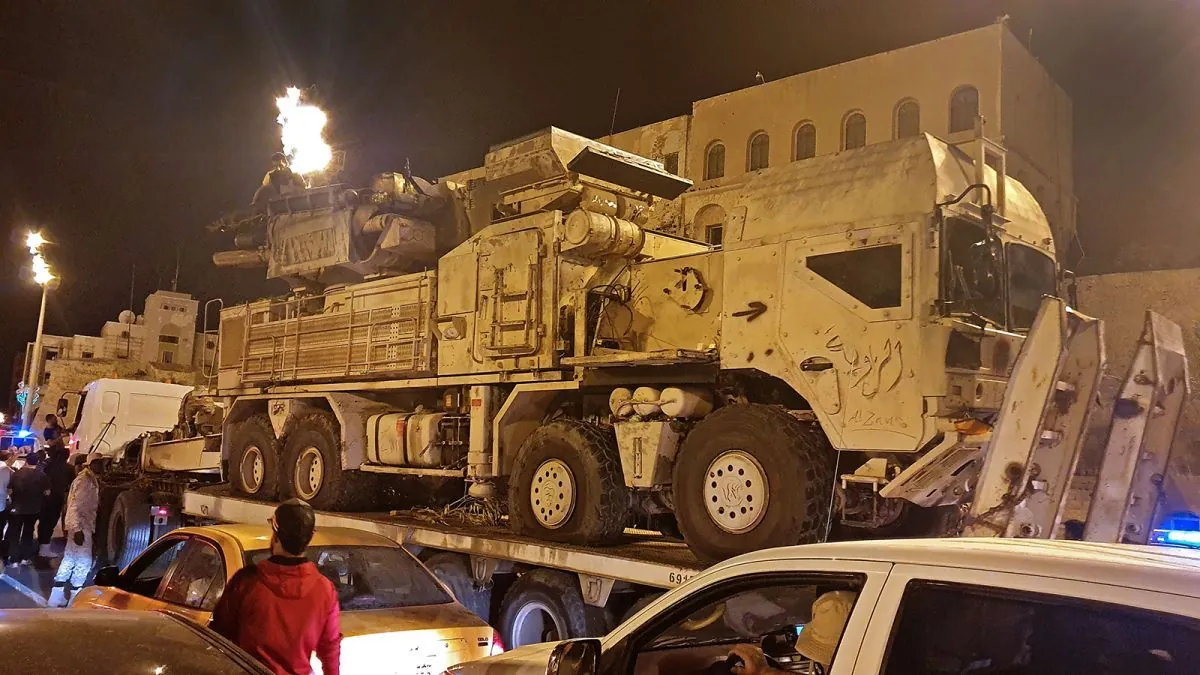Libyan Oil Dispute Sparks Global Price Surge Amid Ongoing Political Turmoil
Libya's oil production halted due to central bank conflict between rival governments, causing global price increases. UN efforts for unified governance continue to face challenges.

In a significant development, Libya's oil production has come to a standstill, triggering a 7% surge in global oil prices. This shutdown stems from a dispute over control of the central bank between rival governments in the country, which possesses Africa's largest crude oil reserves.
The conflict pits the UN-recognized government in Tripoli against an eastern administration led by Khalifa Haftar. The eastern government has declared a "force majeure" on all oil fields, citing an attempted takeover of the central bank by the Tripoli-based administration.
This situation highlights the ongoing political fragmentation in Libya since the 2011 NATO-backed uprising that ended Muammar al-Qaddafi's 42-year rule. The central bank, established in 1956, plays a crucial role as the sole depository for state oil revenues, which account for approximately 95% of Libya's budget.
Security analyst Jason Pack suggests that the oil blockade serves larger Russian geopolitical interests in Libya. Russia, along with Egypt, Saudi Arabia, and the UAE, supports Haftar's eastern administration, while Turkey backs the Tripoli government.

The UN's efforts to unify the country and hold elections have faced significant obstacles. Abdoulaye Bathily, the former UN special envoy for Libya, resigned in April 2024, citing resistance to political progress.
Libya's oil production, representing about 4% of OPEC's output in 2023, primarily supplies European markets. While relatively small, economists warn that this supply is not easily replaceable, explaining its outsized impact on global prices.
In other African news:
A devastating attack in Burkina Faso's town of Barsalogho resulted in approximately 200 casualties. The al Qaeda-linked group Jama'at Nusrat al-Islam wal-Muslimin (JNIM) claimed responsibility. This incident underscores the escalating jihadist violence in the country since 2015.
Berhane Abrehe, Eritrea's former finance minister, died in prison on August 19, 2024, after six years of detention without charges. His imprisonment followed the publication of a book critical of President Isaias Afwerki, who has ruled Eritrea without elections since its independence in 1993.
Gabon's interim president, Gen. Oligui Nguema, has imposed strict holiday restrictions on government officials, limiting them to one week of leave and prohibiting foreign vacations. This move appears to distance the new administration from the practices of the previous Bongo family dynasty, which ruled Gabon for nearly 56 years following its independence from France in 1960.
In sports news, Formula 1 is considering holding a race in Rwanda, which would mark the return of F1 to Africa after a 31-year absence. The last African Grand Prix took place in South Africa in 1993. Rwanda has shown interest in constructing a permanent circuit for this purpose.
"The time's 100 percent right. We can't be adding races in other locations and continue to ignore Africa, which the rest of the world just takes from. No one gives anything to Africa."
Concerns have been raised about potential "sportswashing" of Rwanda's human rights record under President Paul Kagame, who has led the country since 2000.
Lastly, a $13 billion road project in Nigeria has come under scrutiny for alleged corruption. The 700-kilometer Lagos-Calabar coastal highway was awarded without public tender to a company owned by longtime allies of President Bola Tinubu. Meanwhile, Kenyan domestic workers in Lebanon report being unable to leave the country due to the kafala system, which requires employer permission for exit visas.


































